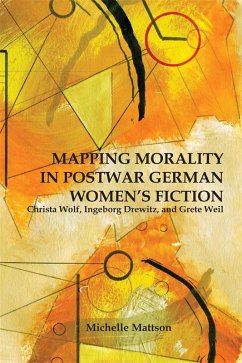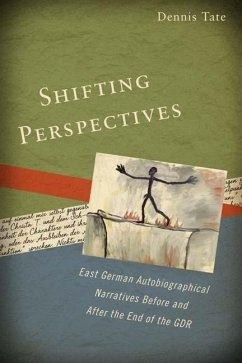Analyzes Wolf's, Drewitz's, and Weil's views of individual responsibility in history, with reference to theories of memory and feminist ethics.
Christa Wolf (1929-), Ingeborg Drewitz (1923-1986), and Grete Weil (1906-1999) occupy very different positions in postwar German literature, yet all three challenge readers to consider how individuals understand their roles in history and how they negotiate their personal responsibilities based on those roles. These three are, of course, by no means the only German writers to have dealt with such questions in the wake of the Third Reich. But Wolf, Drewitz,and Weil ground their projects in the family, an institution often left out of such inquiries, giving them a different starting point for moral reflection.
Before looking closely at the three writers' views of the individual's role and responsibility, the book devotes a chapter to the examination of individual and collective memory, then a chapter to how feminist ethicists view moral responsibility. Chapters on the three writers' literary approachesto the questions follow: Wolf enacts a process of historical and geographic triangulation; Drewitz constructs concentric historical and social circles; Weil seeks to repair the historical ruptures of the Holocaust, creating new historical narratives and exploring the limitations of traditional bourgeois morality. Each of the three attempts to map a geography of morals that begins within the structures of the extended family but interrogates individual responsibility in an increasingly globalized environment.
Michelle Mattson is Professor of German at Rhodes College, Memphis, Tennessee.
Christa Wolf (1929-), Ingeborg Drewitz (1923-1986), and Grete Weil (1906-1999) occupy very different positions in postwar German literature, yet all three challenge readers to consider how individuals understand their roles in history and how they negotiate their personal responsibilities based on those roles. These three are, of course, by no means the only German writers to have dealt with such questions in the wake of the Third Reich. But Wolf, Drewitz,and Weil ground their projects in the family, an institution often left out of such inquiries, giving them a different starting point for moral reflection.
Before looking closely at the three writers' views of the individual's role and responsibility, the book devotes a chapter to the examination of individual and collective memory, then a chapter to how feminist ethicists view moral responsibility. Chapters on the three writers' literary approachesto the questions follow: Wolf enacts a process of historical and geographic triangulation; Drewitz constructs concentric historical and social circles; Weil seeks to repair the historical ruptures of the Holocaust, creating new historical narratives and exploring the limitations of traditional bourgeois morality. Each of the three attempts to map a geography of morals that begins within the structures of the extended family but interrogates individual responsibility in an increasingly globalized environment.
Michelle Mattson is Professor of German at Rhodes College, Memphis, Tennessee.
Dieser Download kann aus rechtlichen Gründen nur mit Rechnungsadresse in A, D ausgeliefert werden.









